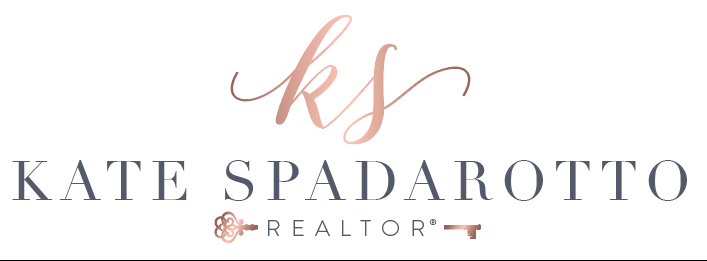With every other news headline talking about our economy, it’s impossible to not think about the impact it will have on real estate.
The truth is: even though the housing market is cooling, it is still nowhere near a normal market.
The question is: do you know that?
With media painting a certain picture, you may be thinking the worst about the market, putting your real estate plans on hold or worse, panicking that we’re going to see a housing collapse.
That’s why these are the 5 slides that you need to see.
A RECESSION DOESN’T MEAN HOME PRICES WILL FALL
We all remember what happened in 2008, and unfortunately for many of you, the words “recession” and “housing bubble” immediately bring back memories of the crash.
However, there are big differences between today’s market and the ones leading up to the crash.
Here are the reasons today is nothing like the last time.
Before the Great Recession, the housing market had:
Loose lending standards
An oversupply of homes
Overtapped equity
Today’s market looks the opposite with:
Stricter lending practices
An undersupply of homes
More equity
In fact, in four out of the last six recessions home prices still appreciated, and experts project the same for this year’s forecast.
HOUSING EXPERTS PROJECT CONTINUED PRICE APPRECIATION
While growing, inventory is still low overall. That’s why most major housing experts project ongoing home price appreciation in most markets. It will just happen at a more moderate pace moving forward.
Why? Because the amount of homes for sale still doesn’t match demand from buyers.
WAITING TO BUY? IT MAY COST MORE THAN TIME
As the saying goes, trying to time the housing market perfectly is a bit like playing the lottery.
While we can never truly foresee what’s going to happen, we can keep our spheres up-to-date on the latest insights, especially in a shifting market.
And the truth is, with the current unpredictability of mortgage rates and experts predicting continued home price appreciation, buying a home sooner than later may be the better financial decision.
Even at a more typical pace of appreciation, buyers still stand to make significant equity gains as their home grows in value.
THE SHIFTING MARKET IS GREAT NEWS FOR BUYERS
It’s probably one of the biggest questions right now: should I buy a home right now?
The good news is that what was once your greatest challenge may now be your greatest opportunity.
Today, data shows buyer demand is moderating in the wake of higher mortgage rates. Here are a few reasons why this shift in the housing market is good news for your homebuying plans.
Moderating demand is slowing the pace of home sales
Housing supply is finally able to grow which means more options to choose from
Bidding wars have eased in recent months
This is great news for anyone that may have put off their buying plans in the last two years because the market was too hot for them to handle.
IT‘S STILL A SELLER’S MARKET
As there’s more and more talk about the real estate market cooling off from the peak frenzy it saw during the pandemic, you may wonder what that means for sellers.
The good news is: it’s still a seller’s market. Here’s why:
Even though inventory is growing, there’s still a shortage of homes to meet buyer demand
Conditions are still in the seller’s favor
While buyer demand is softening due to higher mortgage rates, homes that are priced right are still selling fast.
“Overall, the best summary is that we’ll move from a gangbuster sellers’ market to a modest sellers’ market,” said Ed Pinto, Director of the American Enterprise Institute’s Housing Center
If sellers had any doubts about it, this should help clear up their confusion and shed light on the fact that they still very much remain in the driver’s seat for the housing market.
Bottom Line
While the real estate market continues to shift, there is still a lot of speculation about what the future holds.
Be sure to talk with your local Realtor for information pertaining specifically to your market.






